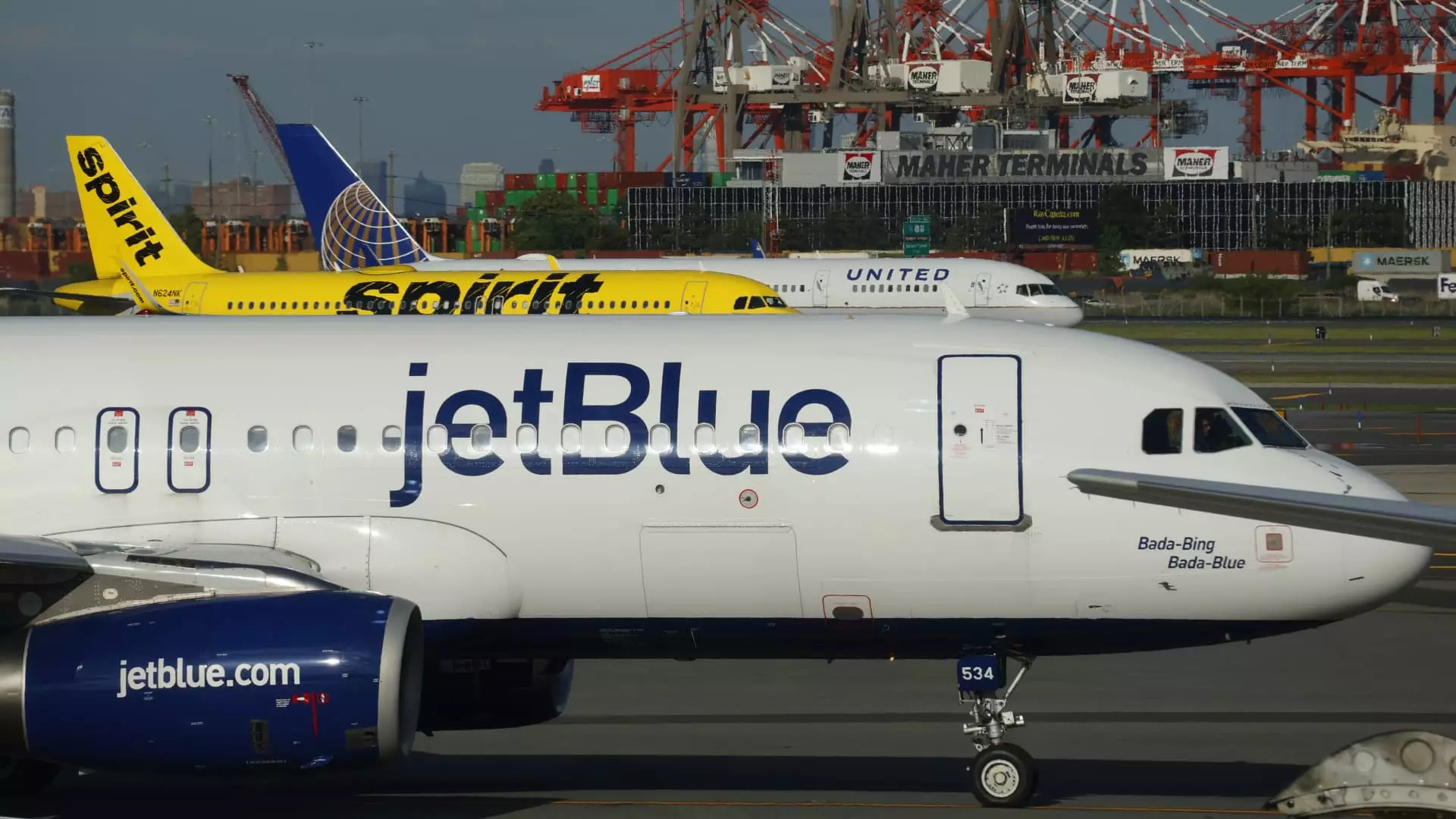In the midst of financial struggles and the impact of engine repairs, airlines that were once eager for new aircraft are now changing their tune. Cash-strapped low-cost and deep discounter airlines are prioritizing saving money over spending billions on new planes in order to return to profitability. Airlines like Spirit Airlines, JetBlue Airways, and Frontier Airlines, which last posted annual profits in 2019, are now facing challenges as they deal with the effects of engine recalls and decreased revenue due to the ongoing pandemic.
The oversupply of flights in the U.S. has driven down fares, particularly in the domestic market where low-cost carriers are concentrated. This oversupply has led to a decline in revenue for carriers, even as costs continue to rise. For example, Frontier Airlines reported a 1% increase in revenue despite carrying 17% more passengers, with average fare revenue falling by 16%. JetBlue Airways has estimated that it will save about $3 billion by deferring 44 Airbus A321 airplanes through 2029. The New York carrier is actively seeking to reduce costs through deferrals and steps like exiting unprofitable routes.
Airlines like JetBlue and Spirit are deferring aircraft deliveries in response to their financial challenges and the engine recall issue. JetBlue CEO Joanna Geraghty highlighted the dilemma of needing planes to grow while simultaneously facing the prospect of grounded aircraft. The airline simply cannot afford to purchase new planes at this time due to its growing debt. Spirit Airlines, too, has deferred aircraft deliveries as it works to turn around losses and deal with the Pratt & Whitney engine recall. The airline reported a significant drop in revenue and a substantial loss, leading to furloughs of pilots.
Industry-wide Challenges
While low-cost carriers are deferring aircraft deliveries, the global airline industry as a whole is still facing challenges with a scarcity mindset regarding new fuel-efficient planes. Lease rates for popular models like Airbus A320s and Boeing 737 Max 8 aircraft are reaching record highs, indicating the ongoing demand for these aircraft. Boeing and Airbus both continue to face production challenges post-Covid due to skilled worker shortages and supply shortfalls. Despite the deferrals from budget airlines, there is still a strong demand for new aircraft in the industry.
Airlines are actively seeking ways to mitigate the financial pressures they are facing. Southwest Airlines, for example, is pursuing opportunities to reduce costs, including addressing overstaffing related to Boeing delivery delays. The airline has offered staff voluntary leave programs as a way to navigate through the challenges posed by delayed aircraft deliveries. While airlines like Frontier have engaged in sale-leaseback agreements to generate cash, Boeing and Airbus continue to struggle with increasing output to meet demand.
The airline industry is experiencing a significant shift as carriers grapple with financial challenges, engine recalls, and oversupply of flights. The decision to defer aircraft deliveries is a strategic move to save costs and focus on returning to profitability. While the industry as a whole continues to face challenges, airlines are adapting their strategies to navigate through these turbulent times.


Leave a Reply